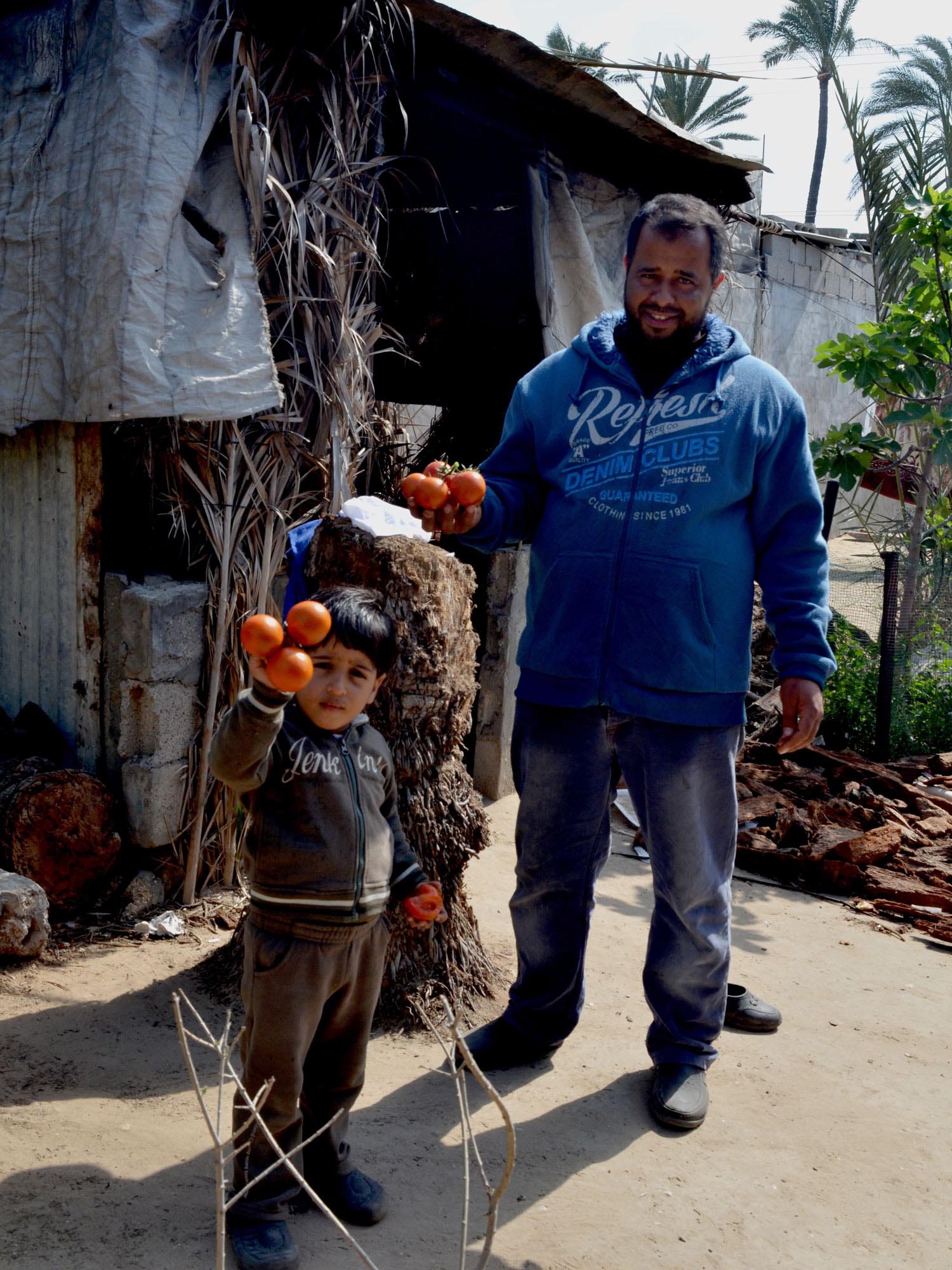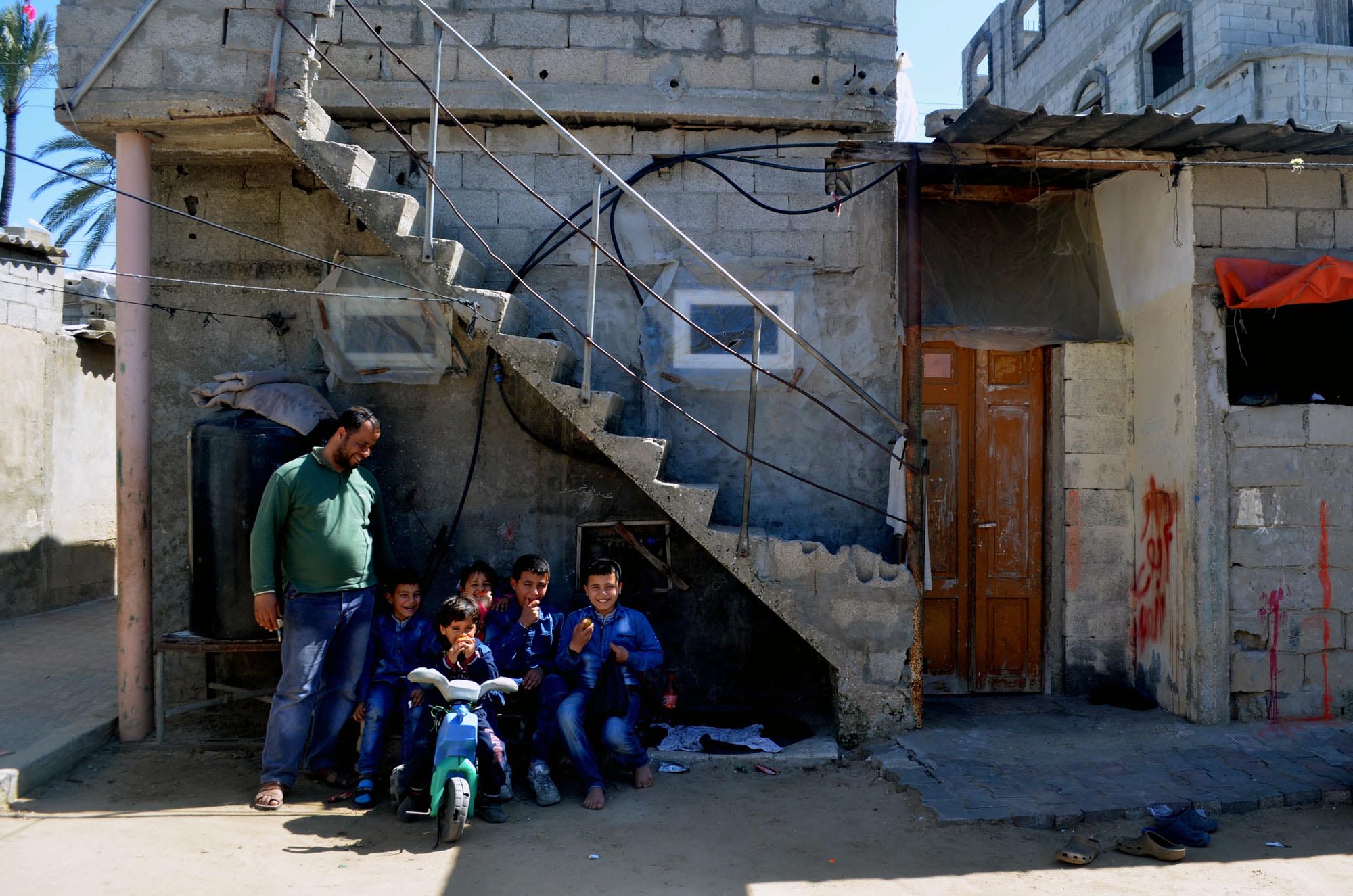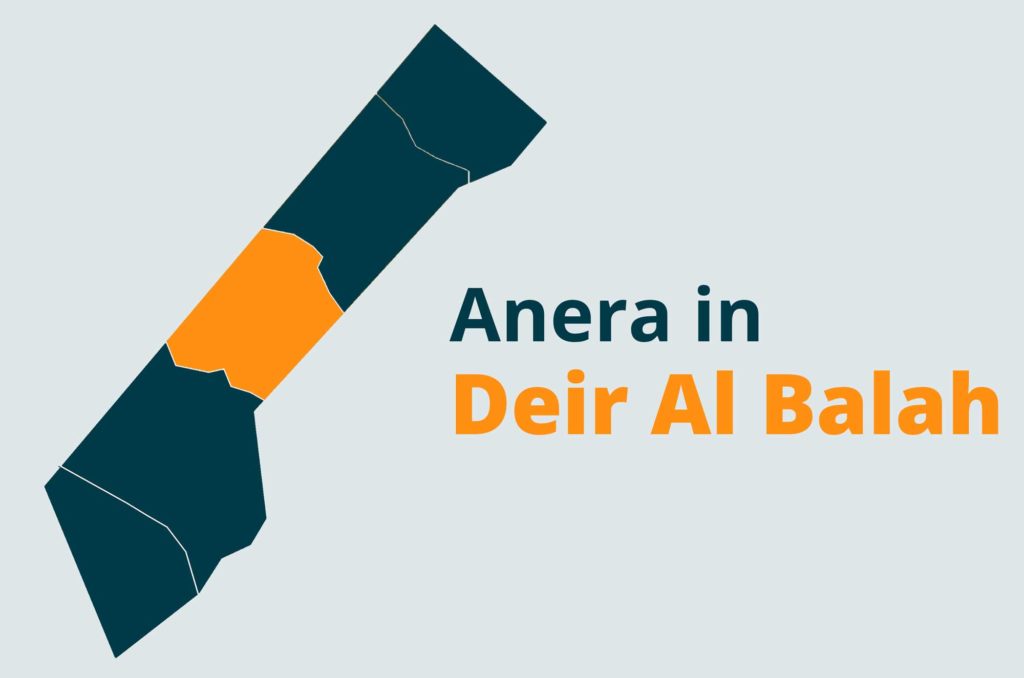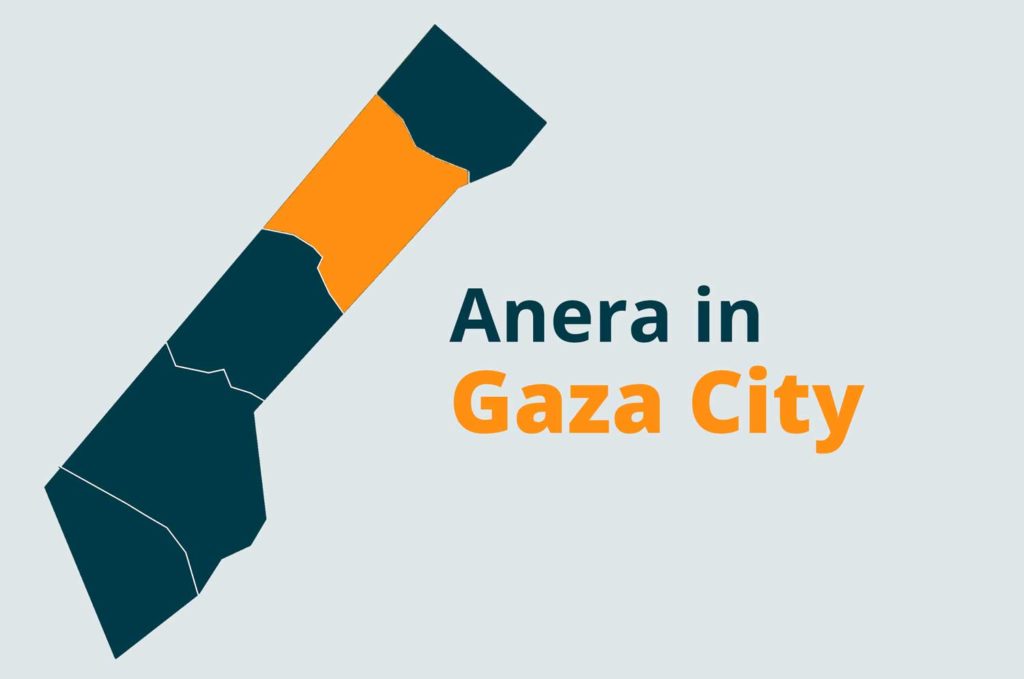Mar, 2017
It’s not yet summertime in Gaza, but tomatoes are already flourishing inside Khaled’s greenhouse.
As a home gardener, he planted the seedlings a couple of months ago, hoping to reap all the benefits with the tender care he gave them.
Khaled fell on hard times since the Gaza blockade began 10 years ago, and he couldn’t afford the high cost farming tools. Like many poor families in Gaza, his was dependent on food assistance. Seeds, soil and water were just out of reach.
“I was pushed to leave farming and look for other work options,” he said. But other options are hard to come by in Gaza, which has the world’s highest unemployment rate.
Now that he has the greenhouse, he can generate a steady income. “The greenhouse gives me hope. I can grow crops in any season, even when the outside weather is the wrong season for harvest.” He received his greenhouse, irrigation pipes, and seedlings from Anera’s food security initiative.


I was pushed to leave farming [due to the blockade] and look for other work options.


“I can grow different types of vegetables in my greenhouse. This helps me feed my family, and then I can sell the rest in the market,” Khaled said.
In greenhouses, poor farmers can grow produce that they could not otherwise plant in open fields. According to Khaled, “Gaza greenhouses are five times more productive than open-field planting.”
With a quick calculation, Khaled found that the tomato harvest produced 30 kilograms for consumption by his extended family of 20 people, and then he had an additional 80 kilograms to sell in the market per week.
Anera provided 14 extremely poor families in Deir El Balah with greenhouses and tools, as well as training in agricultural best practices.
Khaled said the greenhouse harvest is of the best quality because of all the care and attention he gives to each plant. “The tomatoes are always fresh,” he said.
Since Khaled received his greenhouse, he and his family have already seen improvement in their living situation. “With the money I get from selling the tomatoes, I enrolled my family in decent health care insurance, pay for treatment for my ill wife, and also purchased schoolbooks for my children.”
Solar Power Combats Gaza Electricity Cuts
Because of Gaza’s constant power cuts, the project also introduced families to the idea of using solar energy to reduce their dependency on other power systems. They can use solar cookers to boil water and cook meals. The solar cooker is especially handy during Gaza’s hot, sunny summers.
For the next harvest, Khaled has big plans. “I expect to pay all my debts and renovate my decaying house.”




